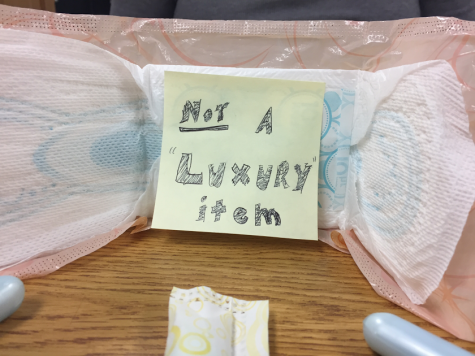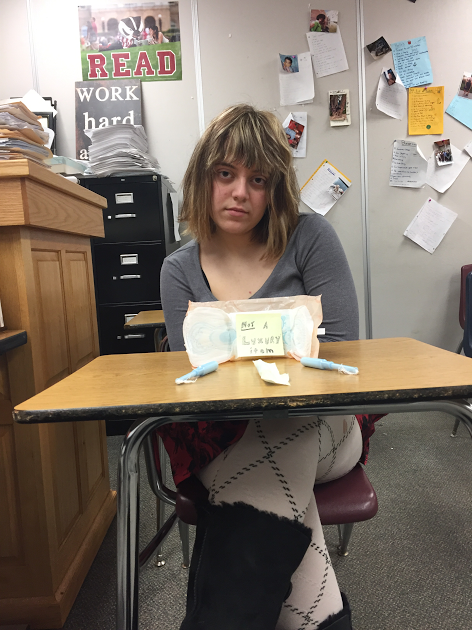The need for better feminine products at North
April 13, 2017
Female health has always been one of the most uncomfortable topics to bring up in everyday conversation, especially when the discussion turns to a woman’s menstrual cycle or more specifically, the methods and products she utilizes to control it. North, however, is in need of better quality feminine products like tampons and pads.
According to Lori Dougherty, the school nurse, the school’s product supply relies heavily on donations from students and parents which is where the diversity of quality in the products lies. The other tampons, courtesy of AASD, come with cardboard applicators and pads are usually not supplied at all. About 70% of women on their periods use tampons which ostracizes a number of students from getting the products they need.
Yes, it is a necessity. Only five states in the U.S. consider feminine products to be a necessity, and sadly, Wisconsin is not one of them. In fact, there are some states that don’t tax pregnancy tests and pads for bladder dysfunctions, but still tax tampons. This brings up the biggest roadblock to providing better products for public schools: budgeting.
There is a stigma at North of labeling us as the wealthy school, which dismisses the notion that there are students enrolled here that do fall below the poverty line and are not always able to take care of their needs for tampons or pads.
According to Huffington Post’s article analyzing the full costs of expenses while experiencing a period, it is estimated that on tampons alone, a woman will spend at least $1,777.30 on them. Add painkillers, new underwear, self-care products, and birth control to the list and the cost grows to about $18,171.
Even if the household can afford the steepening price, hormones don’t always work on an efficient schedule, and a girl could be starting her period during the school day with no preparation. Sometimes keeping track of when a girl’s cycle is irregular. During the fall swim season, I did not get a period for two months which threw my schedule to a completely different time of the month. Girls who are able to afford tampons and pads should be allowed access to the school supply.
But for that to happen, feminine care has to be a priority.




